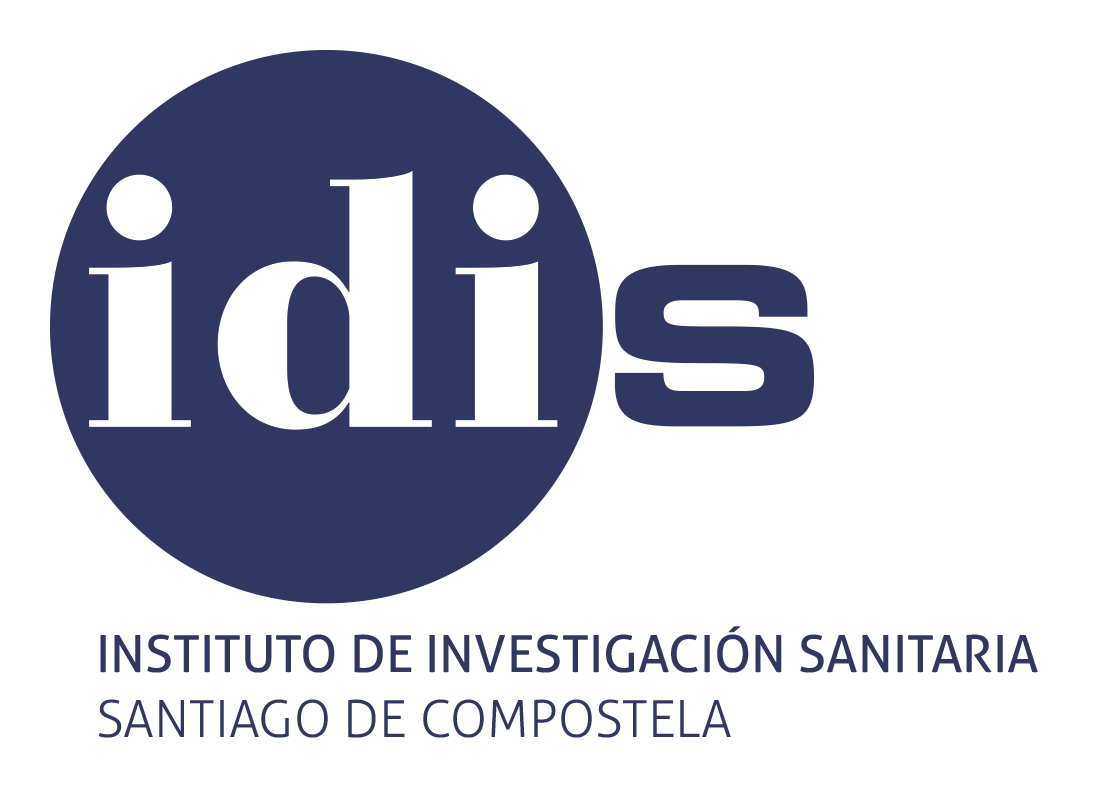Objectives and lines of research
Objectives
The research group is led by a basic principal investigator, Sonia Eiras Penas (specialist in cardiac fat), and a principal clinical investigator, Moisés Rodríguez Mañero (specialist in arrhythmias). Both work together to provide solutions to medical needs in the diagnosis, treatment and monitoring of patients with cardiovascular disease, focusing mainly on cardiac fat and arrhythmias. To achieve the objective, the group focuses on the following studies:
a) Physiopathological mechanisms of cardiovascular disease associated with cardiac fat.
b) Regulatory factors and treatments of the genesis of cardiac fat.
c) New biochemical and cellular indicators, associated with cardiac fat, for the diagnosis and prognosis of cardiovascular disease.
d) Preclinical models that improve the understanding of the cardiac fat-immune and cardiovascular system network.
e) New procedures in the treatment of atrial fibrillation.
f) New risk indicators of atrial fibrillation and its perpetuation.
Lines of research
1. Epicardial fat and cardiovascular pathology
Since 2005, our group has focused on the study of a) the pathophysiological mechanisms in epicardial fat involved in cardiovascular disease (atrial fibrillation, ischemic heart disease or heart failure) and their risk factors b) search for non-invasive markers and easy access of pathogenic epicardial fat, c) paracrine and endocrine activity that allows the identification of systemic markers of cardiovascular pathology and c) its regulation by drugs. For this we have established technologies and preclinical models that are detailed below:
a.1. proteomic, transcriptomic and functional studies (interactome-signaling pathways-therapeutic targets or pathology markers).
a.2. “ex vivo” and “in vitro” models of tissue explants and epicardial fat cells, respectively, as well as cell co-culture systems. Established preclinical models allow us to study the genesis of epicardial fat and its regulation by existing or newly prescribed cardiovascular disease treatments.
2. Interaction epicardial fat, innate immune system and cardiovascular pathology
The inflammatory process triggered by epicardial fat favors the progression of cardiovascular disease. Thus, our group tries to study the mechanisms involved in the interaction between epicardial fat and phagocytic cells and their possible pharmacological regulation.
3. Systemic markers derived from the epicardium in cardiovascular pathology (new diagnostic kits)
Through the application of new technologies and preclinical models, we will try to study the secretory activity of the epicardium and epicardial fat to identify biochemical and cellular markers at the systemic level of the progression of cardiovascular disease, focusing mainly on atrial fibrillation and heart failure. The results of this study will allow the design of new diagnostic kits for the needs of patients.
Research team
Projects
Publications
- Couselo-Seijas M, Rodríguez-Mañero M, González-Juanatey JR, Eiras S. Updates on epicardial adipose tissue mechanisms on atrial fibrillation Obes Rev. 2021 Sep;22(9):e13277. doi: 10.1111/obr.13277
- López-Canoa JN, Couselo-Seijas M, Baluja A, González-Melchor L, Rozados A, Llorente-Cortés V, de Gonzalo-Calvo D, Guerra JM, Vilades D, Leta R, Martínez-Sande JL, García-Seara FJ, Fernández-López XA, González-Juanatey JR, Eiras S, Rodríguez-Mañero M Sex-related differences of fatty acid-binding protein 4 and leptin levels in atrial fibrillation Europace. 2021 May 21;23(5):682-690. doi:10.1093/europace/euaa284.
- Couselo-Seijas M, Lopez-Canoa JN, Fernandez ÁL, González-Melchor L, Seoane LM, Duran-Muñoz D, Rozados-Luis A, González-Juanatey JR, Rodríguez-Mañero M, Eiras S. Inflammatory and lipid regulation by cholinergic activity in epicardial stromal cells from patients who underwent open-heart surgery. J Cell Mol Med. 2020 Sep;24(18):10958-10969. doi: 10.1111/jcmm.15727.
- Agra-Bermejo RM, Cacho-Antonio C, Rozados-Luis A, Couselo-Seijas M, Fernandez AL, Martinez-Cereijo JM, Bravo SB, Gonzalez-Juanatey JR, Eiras S. CD5L, Macrophage Apoptosis Inhibitor, Was Identified in Epicardial Fat-Secretome and Regulated by Isoproterenol From Patients With Heart Failure. Front Physiol. 2020 Jun 30;11:620. doi: 10.3389/fphys.2020.00620.
- Couselo-Seijas M, Agra-Bermejo RM, Fernández AL, Martínez-Cereijo JM, Sierra J, Soto-Pérez M, Rozados-Luis A, González-Juanatey JR, Eiras S. High released lactate by epicardial fat from coronary artery disease patients is reduced by dapagliflozin treatment. Atherosclerosis. 2020 Jan;292:60-69. doi: 10.1016/j.atherosclerosis.2019.11.016.
- Lopez-Canoa JN, Baluja A, Couselo-Seijas M, Naveira AB, Gonzalez-Melchor L, Rozados A, Martínez-Sande L, García-Seara J, Fernandez-Lopez XA, Fernandez AL, Gonzalez-Juanatey JR, Eiras S, Rodriguez-Mañero M. Plasma FABP4 levels are associated with left atrial fat volume in persistent atrial fibrillation and predict recurrence after catheter ablation. Int J Cardiol. 2019 Oct 1;292:131-135. doi: 10.1016/j.ijcard.2019.04.031
- Couselo-Seijas M, López-Canoa JN, Agra-Bermejo RM, Díaz-Rodriguez E, Fernandez AL, Martinez-Cereijo JM, Durán-Muñoz D, Bravo SB, Velo A, González-Melchor L, Fernández-López XA, Martínez-Sande JL, García-Seara J, González-Juanatey JR, Rodriguez-Mañero M, Eiras S. Cholinergic activity regulates the secretome of epicardial adipose tissue: Association with atrial fibrillation. J Cell Physiol. 2019 Jul;234(7):10512-10522. doi: 10.1002/jcp.27723.
- Díaz-Rodríguez E, Agra RM, Fernández ÁL, Adrio B, García-Caballero T, González-Juanatey JR, Eiras S. Effects of dapagliflozin on human epicardial adipose tissue: modulation of insulin resistance, inflammatory chemokine production, and differentiation ability. Cardiovasc Res. 2018 Feb 1;114(2):336-346. doi: 10.1093/cvr/cvx186

